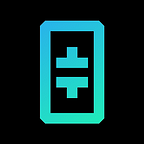Theta Network and the Web 3.0 Revolution in Edge Networking
Web 3.0 is often described as the convergence of several different emerging technologies, including AR/VR, 5G, IoT, blockchain, and AI. For background, Web 1.0 was the early days of the internet (think AOL and Netscape), while Web 2.0 was characterized by the rise of e-commerce, mobile apps and social media led by Facebook, Google, Amazon, Microsoft, and Apple starting around 2007. Web 3.0 is in many ways the reaction against the excesses and market dominance of the world’s largest tech companies. One of the main themes emerging for Web 3.0 is the goal of retaining the innovations of Web 2.0, but putting the power back in the hands of the individuals by letting them control their own data and share in the benefits of new technology. Decentralization is one of the core tools used to accomplish that goal, as power shifts from massive global tech companies to end users and their billions of connected devices.
Theta Network is one of the many protocols that will govern how these devices interact with each other in Web 3.0. Theta as a protocol is a set of rules that defines and governs the interactions between these billions of users (edge devices), which lets them organize themselves in a bottoms-up network, unlike the top-down hierarchical systems of today. It provides the tools needed for devices to effectively communicate and transfer data and value between each other.
Theta Network’s peer-to-peer data relaying increases the efficiency of delivering video streams and other data heavy applications, making it cheaper and more effective for any platform that moves large amounts of data. Video is an ever-increasing piece of the data demand puzzle, and as more video content moves to VR and AR this effect will multiply. Demands for data will continue to grow rapidly, and the need for an efficient Edge Network even more critical. But the future we envision is much larger than individual platforms gaining some efficiency — it’s ALL connected devices being used to form a global Edge Network, which is always on, decentralized with nodes on the edge close to users, and incentivized via crypto micropayments, rather than controlled from the top.
A side benefit to the emergence of a strong Edge Network of devices is that more user data can be controlled by individual users, rather than massive centralized data silos.This is a growing demand from users, and a reaction against the user data gathering and monetization of the largest tech companies. When each device can act as an independent node in the Edge Network, whether it’s a phone, TV, or other device, it can provide only the information it chooses to when participating. Theta is just a protocol for interaction between devices — there’s no User Agreement to sign allowing all of your personal identifying information (PII) to be shared with the highest bidder. This is not a hypothetical concern — just in the past year, T-Mobile, Pakistani Mobile, Estee Lauder, and Wawa each had data leaks affecting 10s of millions of users. You simply can’t trust your user data in a centralized repository. The Edge Network means more of your data stays on your device, making it safer for user data, harder to attack and less vulnerable to single points of failure.
The wiser tech companies are realizing this trend of data and computing moving to the edge is inevitable — and instead of fighting it, they are embracing edge networking even as it eats away at centralization. Samsung, a strong supporter of decentralization and blockchain and an investor in Theta Labs, is working with IBM to bring advanced AI to Samsung Galaxy devices on the edge, where increased compute power to the edge lets logistics companies use the IBM Cloud without centralized servers. As Andrew Randall of Kinvolk put it in his interview with Samsung Next, “as edge computing becomes as easy to consume as cloud computing, every industry is going to find applications for it”. All of these technologies will be working together to create the decentralized, user-owned, hyper-efficient Edge Network of tomorrow.
